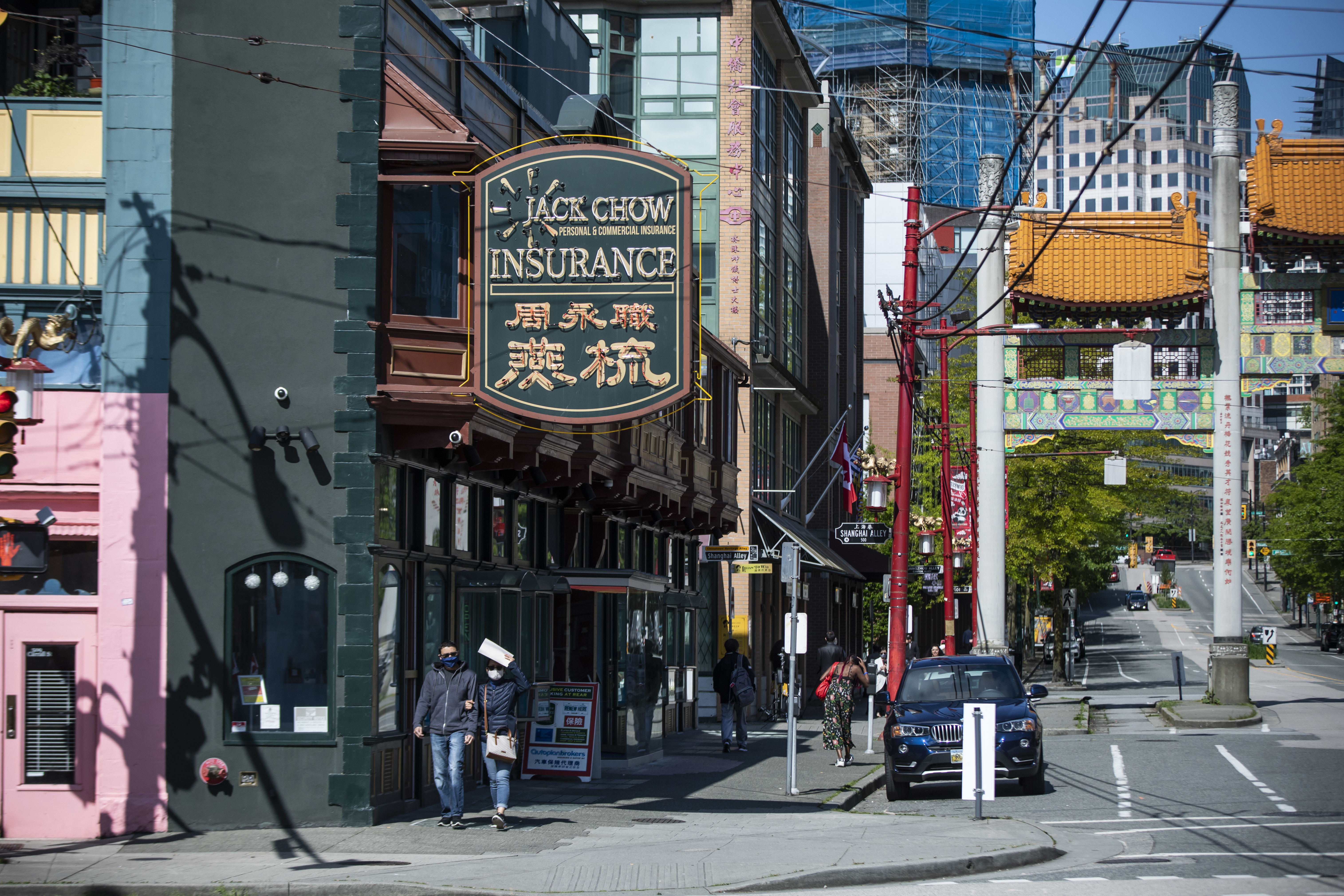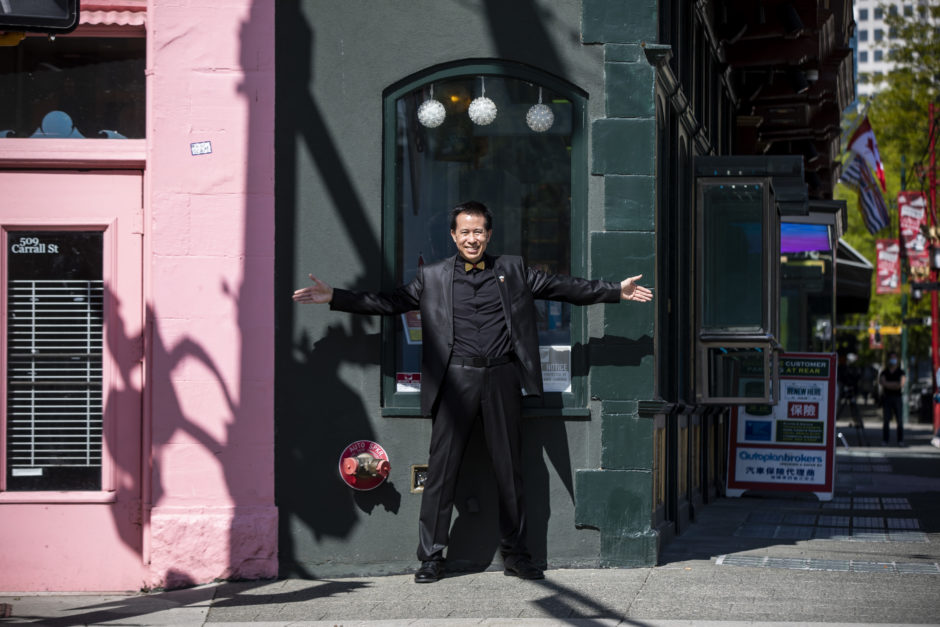The Jack Chow Insurance building, also known as the Sam Kee building, was built on a bet, according to its owner Rod Chow.
In the early 1900s, businessman Chang Toy bought a standard 30-foot lot at the corner of Pender and Carrall streets.
But the City of Vancouver needed to widen one of the streets, so it expropriated 24 feet of the land leaving him with only six feet.
"No one thought he could do anything with it," said Chow.
Toy made a bet with a business associate in 1912 that he could construct a building on the thin parcel of land and did so by hiring local architects to make the steel-framed building.
Chow said his father, well-known businessman Jack Chow, purchased the building in 1985, along with a building across the street and the parking lot behind the structure, to put roots down in the community.
While the pandemic — along with homelessness and drug use spilling over from the Downtown Eastside — are taking a huge toll on Chinatown, Chow says the historic building and his business aren't going anywhere.
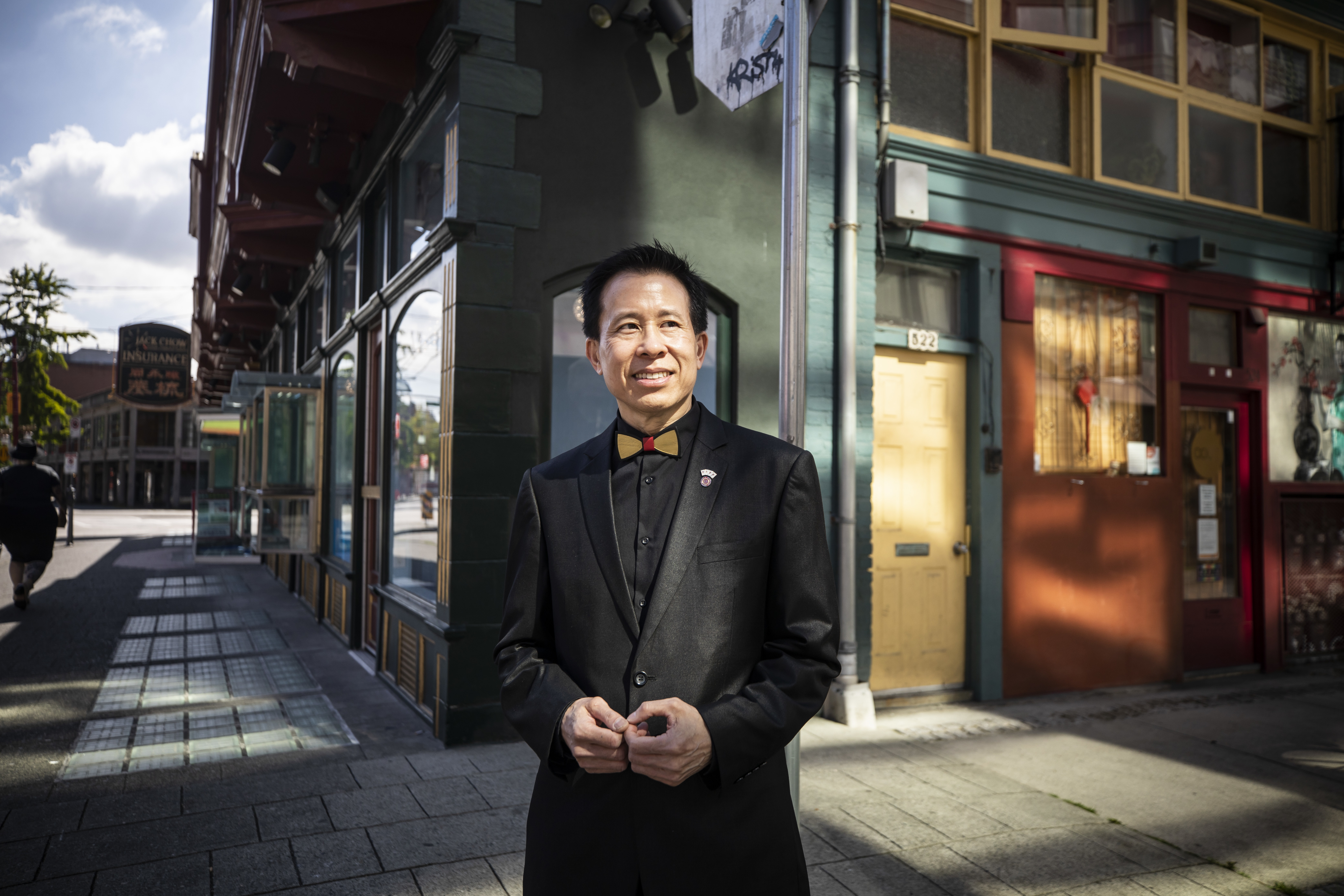
"My father has always been here in Chinatown and he also had great foresight ... he did everything he could to improve Chinatown, bring business here and he really had a stake in Chinatown," said Chow. "We're here to stay."
Part of that foresight, Rod said, was a renovation project in 2016 where they brought back glass window wicket service to the outside of the building so customers could be helped inside and on the sidewalk, doubling business capacity.
"We were perfectly set up for the pandemic," said Chow.
Michael Tan, co-chair of the Vancouver Chinatown Legacy Stewardship Group, said it warms his heart to hear legacy businesses that have been in the neighbourhood for decades are committed to staying.
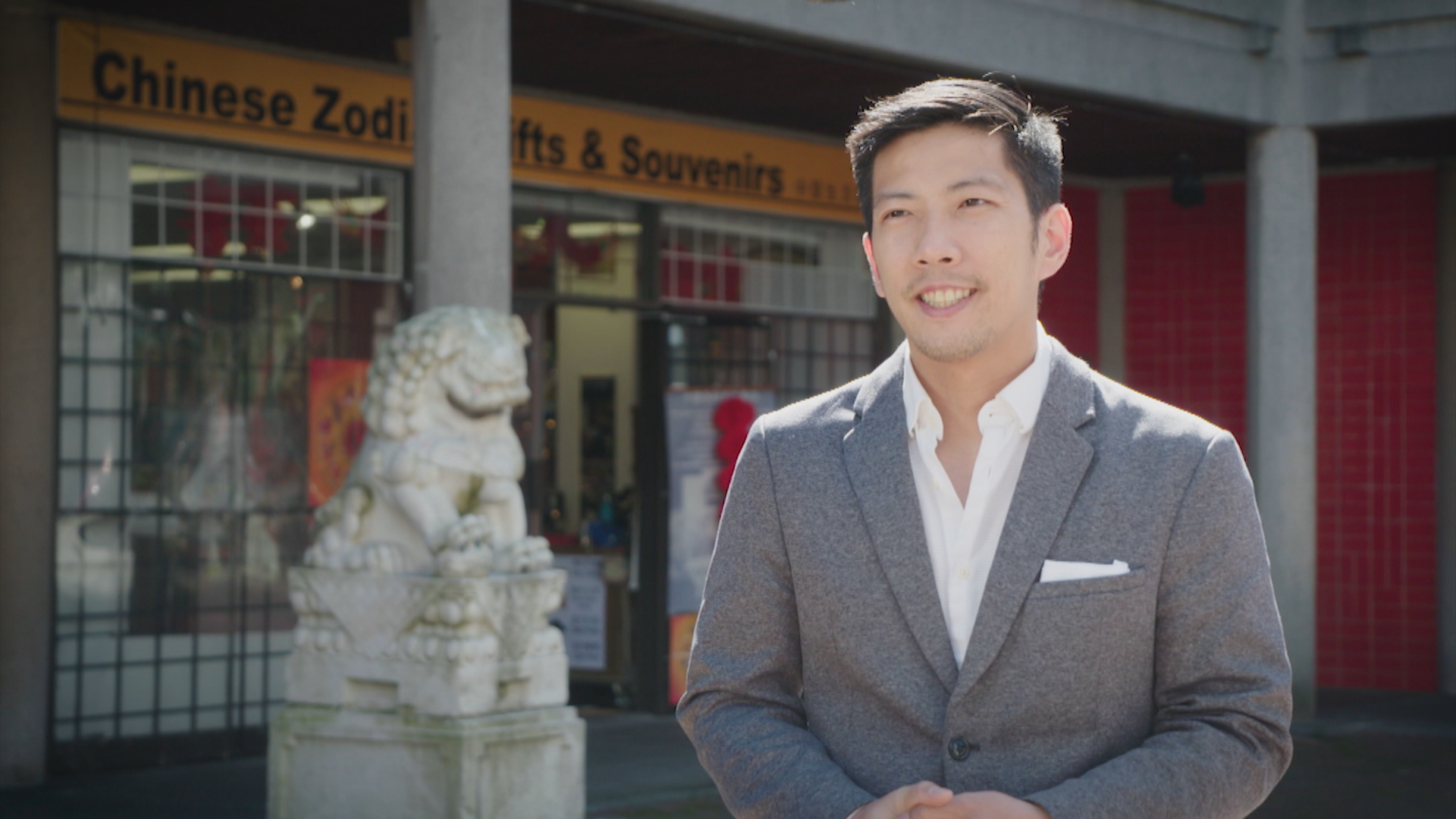
The Vancouver Chinatown Legacy Stewardship Group estimates current vacancy rates at 18 per cent or about one in every five shops.
"It's so important that these legacy businesses are maintained and preserved for future generations because they help tie the community to, not just what's in the past, but to the future," said Tan.
The structure at 8 West Pender Street is also the world's narrowest commercial building, according to the Guinness Book of World Records.
Spite house
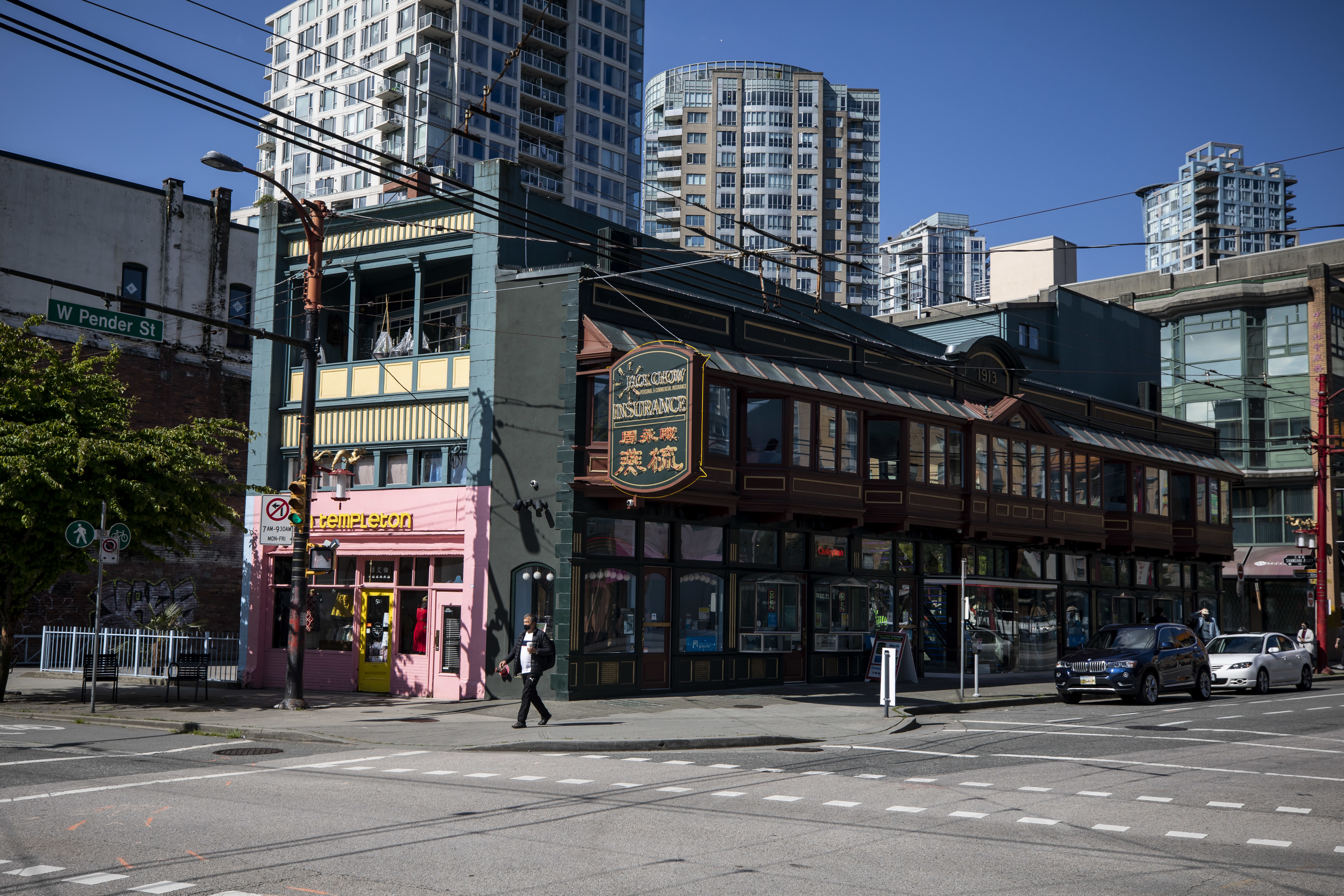
Writer and author of Vancouver Exposed: Searching for the City's Hidden History, Eve Lazarus, said the Sam Kee building is not only famous for being skinny, it's known as a spite house.
"A spite house is a building or something done to a building that's meant to piss somebody off as Chang Toy did so successfully with this spite house," said Lazarus.
Buildings are more than bricks and mortar, they hold our social histories, Lazarus said. What worries her is people losing the history of these structures forever when these places are torn down.
"When we've got the physical presence of the history ... that you can go and see and touch and experience, then it becomes new for a whole new generation of people," she said.
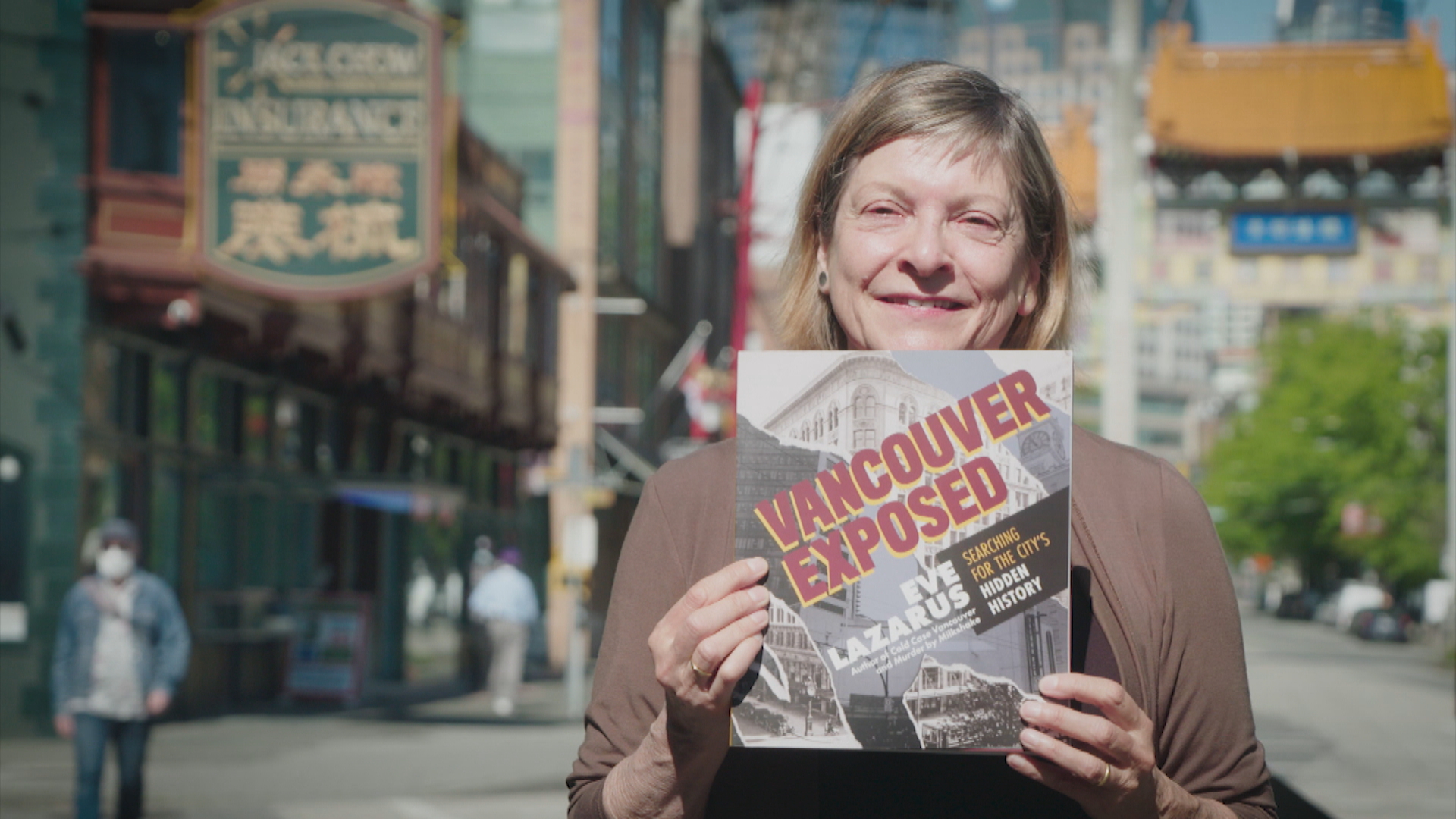
Tan said he's not worried about Chinatown as a neighbourhood because there will be continued economic development, but he can't say for certain if the cultural character will remain.
"It's going to change, absolutely, but there are aspects of it we want to maintain and conserve and those legacy businesses are a critical part of that."
Chow said it would be nice for his kids, who are in university right now, to join the family business in the future to keep the legacy going.
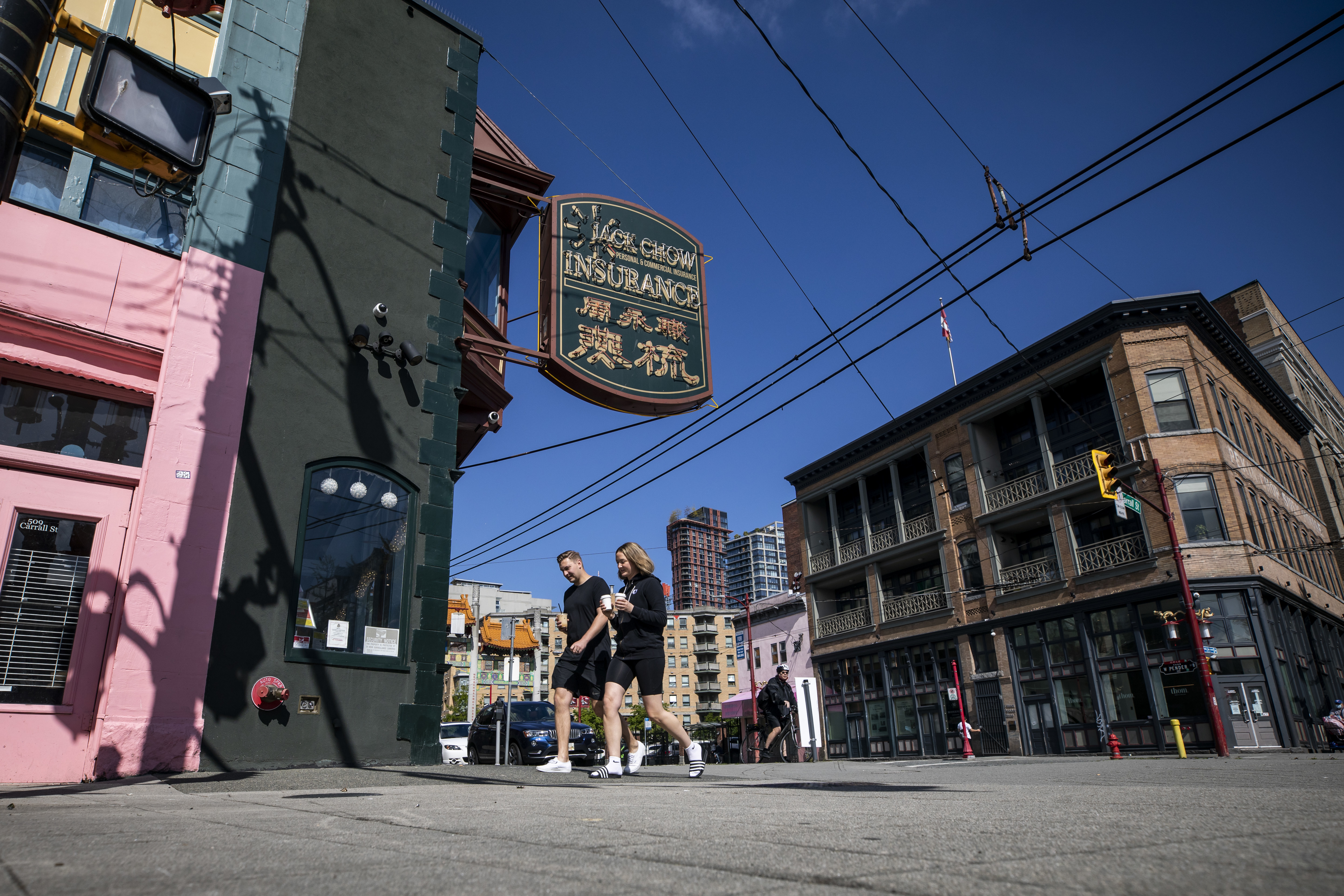
More immediately, he's also looking forward to locals and tourists exploring the neighbourhood after the pandemic ends.
"We hope that the Chinatown businesses will start to open back up again and we will have more people come in here and just really enjoy Chinatown the way they should enjoy Chinatown."
